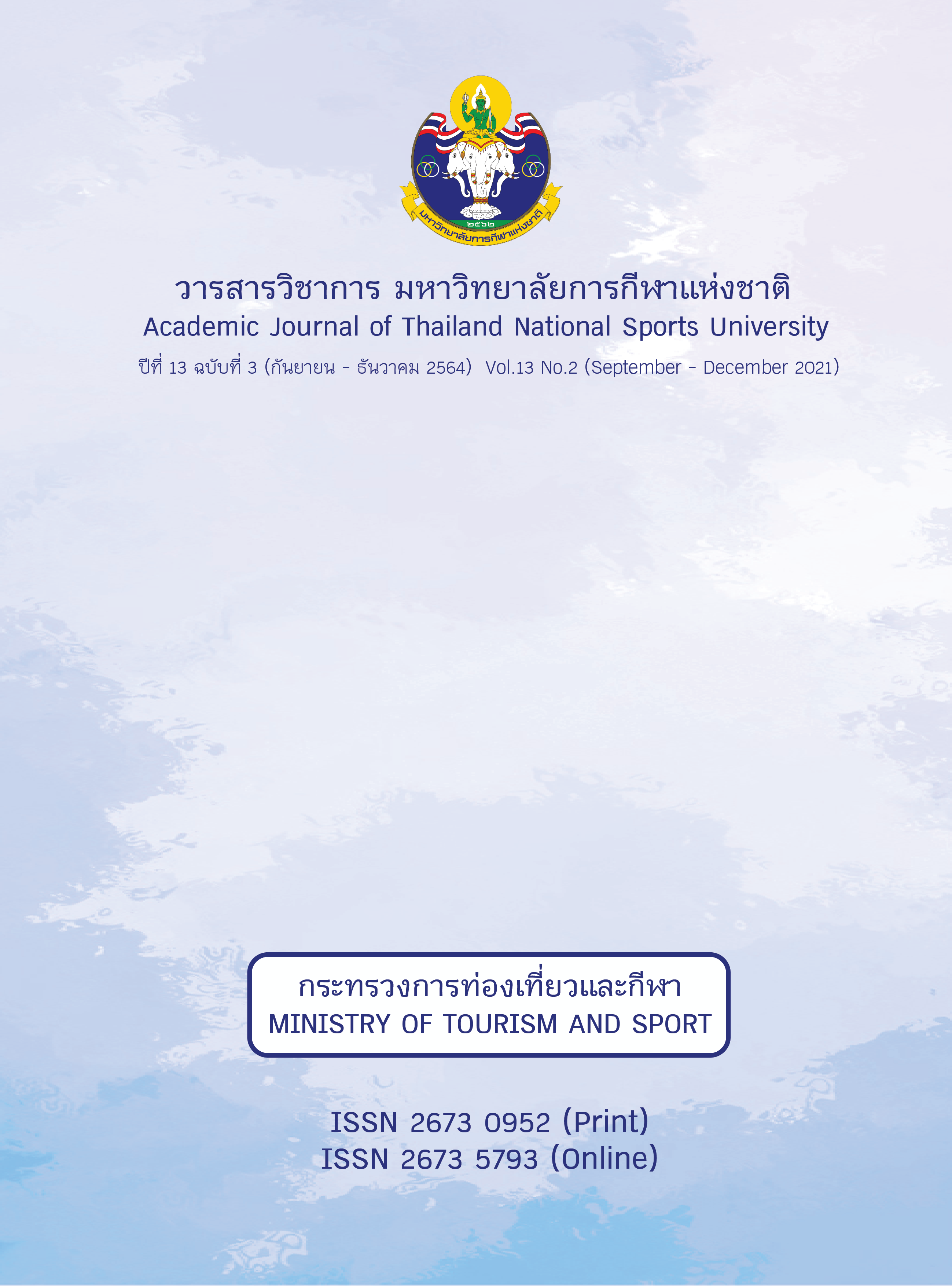STRUCTURAL EQUATION MODEL OF EFFECTIVE LEADER DERIVING FROM PARTICIPATING IN RUGBY FOOTBALL
Main Article Content
Abstract
Purpose: The purposes of this research were (1) to analyze the factors affecting effective Leader deriving from participating in rugby football, (2) to examine structural equation model of effective leader deriving from participating in rugby football, and (3) to compare the factors affecting the effective leadership of rugby football players among three different levels of youth, higher educational, and club rugby players.
Methods: This research was conducted through the quantitative approach. The subjects studied in this research were 1,433 rugby football players and stakeholders. Stratified Random Sampling was used to select the samples of this research. The research instrument used to collect the data was the questionnaire concerning the opinions and real-life conditions regarding the factors affecting effective leadership of rugby football players. The validity of the questionnaire examined by the experts was at 0.883, and the reliability of Cronbach's Alpha was 0.965. Statistics used in data analysis were percentage, mean, standard deviation, confirmatory factor analysis (CFA), structural equation modeling (SEM), and F-test (One Way Analysis of Variance), and Least Significance Difference: (LSD) in rugby football players from the three levels.
Results: The research results indicated as follows: (1) factors affecting the effective leadership of rugby football were consisted of nine factors with a statistically significant positive correlation with the confirmatory factor index (CFI) at 0.936, (2) concerning results of the model examination on structural equation modeling, indicated the modeling equations was at a high level of fitness (CFI = .883), and the total positive direct effects of the highest three factors with statistically significant positive influence at the .05 level were the efficient manager, expected social behavior, and self - development, with a combined value of .684, .621, .041 respectively, and (3) a comparison of the factors affecting the effective leadership of rugby football between the sample of junior high school students and the club by 9 factors were statistically significantly different at .05 level respectively.
Conclusion: Based on the findings, it could be concluded that this study conducted is beneficial for creating effective leadership. Rugby football participation is appropriate to encourage children and youth to develop their own for the future real progress. Institutions and organizations should encourage in learning rugby football as special curriculum activities to help develop the personality as a good leader for the nation in the future.
Article Details
The published article is a copyright of the Academic Journal of Thailand National Sports University. The passage appeared in each article in this academic journal is a perspective of each author which is not related to the journal. Each author is required to be responsible for all components of his/her own article. If there are any mistakes, each author must be responsible for those mistakes on his/her own.
References
Hersey, P. and Blanchard. (1977). Hersey & Blanchrad’s Situation Leadership Theory. Retrieved from www.leadership-central.com/ situation-leadership-theory.html
Huse. (1978). Leader. Retrieved from http://www.nrru.ac.th/article/leadership
IRB. (2016). Coaching course. Level 3 Thailand Rugby Football Union.
Kawi Wongput. (1992). Summarized 5 concepts about leaders. Retrieved from https://dera.ioe.ac.uk/4904/1/download%3Fid%3D17370%26filename%3Dschool-leadership-concepts-evidence-summary.pdf
Kruthep. (2014). Ground Sport music. Retrieved from https://th.wikipedia.org/
Laws World Rugby. (2016). Laws of the Game in every match. Retrieved from http://Laws.worldrugby.org/downloads/World_Rugby_Laws_2016_EN.pdf
Mark R. J. P. and Burkett T. W. (1998). Australian Rugby Union National Coaching Scheme Level 1-2. Forward & Black Play. Retrieved from https://www.amazon.com/Rugby-Backline-R-J-Marks/dp/0958535604
Suthep Pongsriwat. (2002). Leadership and Theory. Retrieved from http://suthep.ricr.ac.th
Taro Yamane. (1973). Statistics: An Introductory Analysis (3rd ed.). New York: Harper and Row.
Terry, G.R. (1960). Principle of Management (3rd ed.). Homewood, IL: Richard D. Irwin.
Wikipedia. (2009). Invictus [film]. Nelson Mandala.


